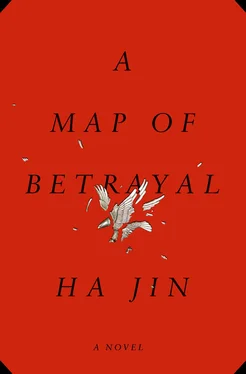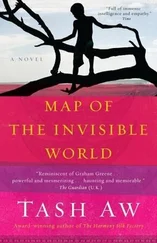Later in the fall of 1965 Gary was notified by Father Murray that he’d been promoted to the fourteenth rank, similar to that of a lieutenant colonel. And along with the promotion came a first-class merit citation awarded by China’s Ministry of National Security. His salary was 154 yuan a month now, about $70. That was a substantial amount, considering a worker usually made less than 50 yuan monthly. Gary assumed that his salary had routinely been sent to Yufeng. He had no idea that since she’d left their home village four years before, she hadn’t received a penny from the government.

Minmin, my student in Beijing, wrote me that she was done with her master’s and had just defended her thesis on the feminist movement in the United States in the 1970s. She wished I’d been there when “those fogies” on her committee were badgering her “with inane, outrageous questions.” I emailed back and asked about her future plans. She said candidly that she was thinking about climbing Mount Everest, which for some reason had been on her mind of late. She could not explain why, but she couldn’t stop thinking about the mountain. I liked that about her — she had the passion to follow her own vision, however silly and impractical it might seem.
In fact, I’d once told the students in my graduate seminar back in Beijing, “I admire many good qualities the Chinese have, such as diligence, resourcefulness, modesty, respect for old people, but I’ve found two characteristics I don’t like about the Chinese, which I might also have since I am half Chinese. The two are petty cleverness and practical-mindedness, which tend to bring about expediency and compromise. These two shortcomings can erode the steadfastness of one’s character and undermine one’s will to do what’s meaningful in the long run. George Bernard Shaw once said: ‘The reasonable man adapts himself to the world; the unreasonable one persists in trying to adapt the world to himself; therefore all progress depends on the unreasonable man.’ I hope that when you’re young, you cherish your unreasonableness, which, like the fire of life, might dwindle as you grow older.” The moment I said that, I realized I’d quoted those words from a volume of my father’s diary, over which I had pored the night before. On its very first page he had put down that sentence by Shaw, whose plays, like D. H. Lawrence’s novels, had helped him while away the long lonesome days in Okinawa.
I thought I might have offended some of my students, but a good number of them told me that my words made them think a lot, that they appreciated my candor. One even thanked me for reminding him not to become “a smart fool.”
Minmin, unlike most young Chinese, didn’t seem pragmatic. She was undaunted by the difficulties of reaching the summit of Mount Everest. (Of course she had fewer financial worries and family duties compared to other young people.) She might not be clever, but her vivacious personality set her apart from her classmates as an individual who still showed a spark of life. For that I admired her.
She also told me about a dilemma she had to solve — a military college had just approached her with a job offer. If she accepted it, she might have to put off or abandon her Mount Everest dream. I didn’t know how to advise her, since physically she wasn’t that strong and I wasn’t sure she could climb the mountain even though she had all the support she needed from her well-heeled brother. She might not even be able to go through the strenuous training for mountaineering, so I refrained from offering her any advice.
I HADN’T KNOWN Henry had been emailing with Ben directly. When he told me, I felt uncomfortable and asked, half in jest, “So you two can bad-mouth me behind my back?”
“Come on, Lilian,” Henry said. “You know guys can chat more freely without a girl around.”
“What do you talk about?”
“Ball games, girls, politics, military history, smart weapons. Also about how to make money.”
“Ben already has a girlfriend. Why still talk about girls? Isn’t Sonya good enough for him?”
“He’s a handsome guy. There must be others falling all over him.”
“You really think he’s good-looking?”
“Absolutely.”
By Chinese standards I’d say Ben had average looks — a bit too masculine, big-boned, rough around the edges. Conventionally, Chinese women preferred men with slightly feminine features — smooth skin, soft eyes, a delicate jaw, a refined manner. Some also liked bookish men, perhaps because the knowledge of books used to promise power and wealth, not to mention prestige. That has changed, though, as capitalism has penetrated every fiber of Chinese society and reshaped people’s values and mentality. Most young men have a different sense of masculinity now. Two decades ago, my male Chinese friends had often said that their ideal man was the late premier Zhou Enlai or the great writer Lu Xun, both of whom were not strong physically. Nowadays many young men would pick Michael Jordan or Kobe Bryant or Tim Duncan (nicknamed Stone Buddha by his Chinese fans) as their male icon. And believe it or not, a lot of them also worshiped Allen Iverson because the six-foot basketball player embodied the possibility of stardom for men of average stature.
In late July I got a disturbing message from Juli. Wuping had jilted her and removed her from the band, and now she was at a loss about what to do. I urged her to keep a cool head. Since the relationship hadn’t been going anywhere, it might be better to break up sooner than later. “You don’t understand, Aunt Lilian,” Juli retorted. “He has shacked up with another woman. The bitch just graduated from a drama college and started acting in a TV show. She knows how to put a spell on men and always sways her ass like it is a beacon in a lighthouse. There’s no way I can compete with a slut like that. Heavens, my worst nightmare has come true!” The more we wrote back and forth, the more desperate and unbalanced Juli sounded. Then she told me that Wuping had beaten her and called her “a crazy cunt” when she went to his office to confront him. I guessed she must have made a scene.
I called Ben to see how much he knew about his sister’s trouble. To my relief, he was up-to-date and said he’d met Wuping before and known from the outset that the man was unreliable. “He’s a crook and a self-styled lady-killer,” Ben said. “He uses every trick to turn a woman’s head, but he’s a smug good-for-nothing, the type we call ‘an embroidered pillowcase.’ ”
“In English we say ‘an empty suit,’ ” I told him.
“That’s right. A big nothing or a bag of hot air.”
I laughed out loud, amused that he could come up with those expressions. “He looked too smooth to me, like a top-notch schmoozer,” I said. “But how can we help Juli? She seems to have lost her head over that jerk.”
“Don’t worry, Aunt Lilian. I’m heading back to Guangzhou tomorrow night and will settle up with him.”
“What are you going to do? You must not resort to violence, okay?”
“Of course I won’t touch him, but I’ll talk with him. He knows I’m well connected in police circles there and can have him brought in anytime.”
I couldn’t grasp the full implications of Ben’s words and asked, “Do you have enough money for the trip?”
“My company will pay. I’m also going back for business meetings in Beijing.”
His ability to fly back and forth so easily made me mull over my father’s life again. During his first years here, how poignantly Gary must have longed to go back to visit his family, even just once. Yet perhaps little by little he got accustomed to the pain of loss and jaded about homesickness. Did he always remember the streets of his village and the trails on the mountain slopes and along the rivers that used to be frequented by cranes, herons, mallards? And the endless chestnut groves on the hills? And the temples and shrines on the lakesides? Probably to a great extent he had managed to suppress the memories of home so he could function normally each day. Did he ever imagine adopting a new homeland so that he could restart his life here? Surely having “eaten all the bitterness” (as he phrased it in his diary), at last he could enjoy American life, given that he did grow to like this country. What a tangled existence he had lived. In recent months he had grown more enigmatic to me, because at times it was hard for me to penetrate the armor of detachment he had clothed himself in.
Читать дальше












